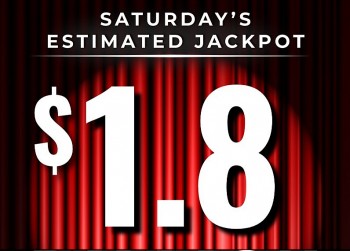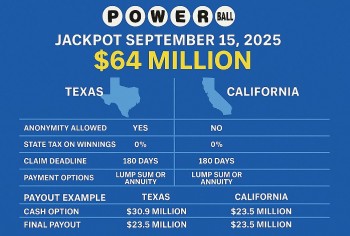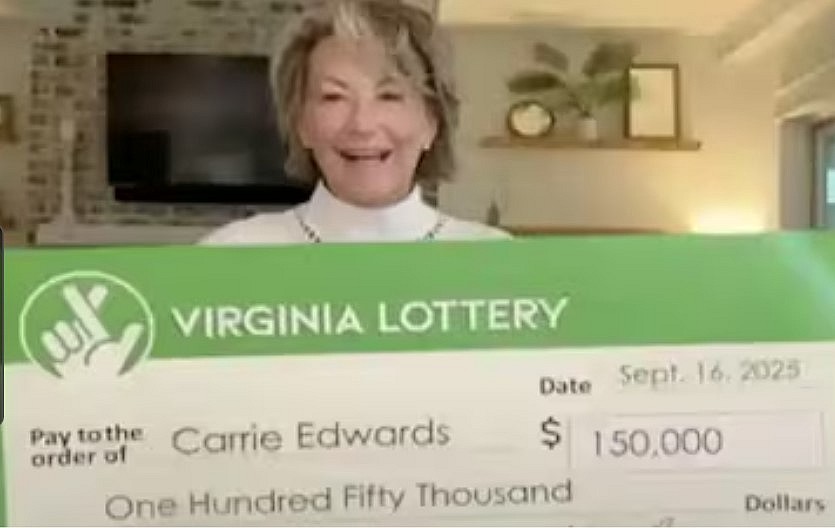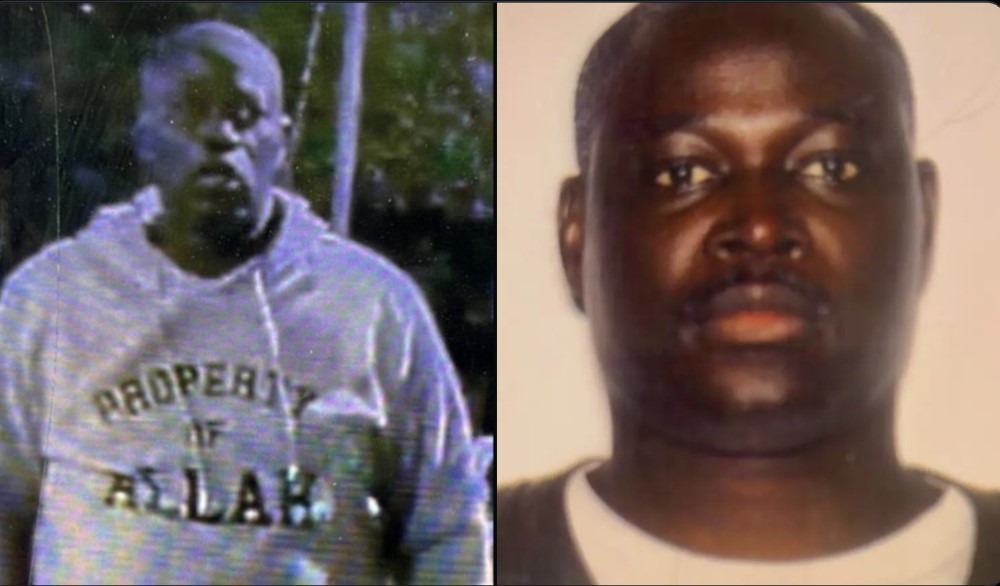Can ChatGPT Help You Win the Lottery? The Truth Behind Carrie Edwards’ $150,000 Powerball Win
 Two Powerball Players Hit Nearly $1.8 Billion Jackpot — Who Are the Lucky Winners? Two Powerball Players Hit Nearly $1.8 Billion Jackpot — Who Are the Lucky Winners? |
 Powerball Jackpot September 15, 2025: How State Laws in Texas and California Impact Winnings, Taxes, and Privacy Powerball Jackpot September 15, 2025: How State Laws in Texas and California Impact Winnings, Taxes, and Privacy |
The Case That Sparked the Question
Carrie Edwards, a grandmother in Virginia, won $150,000 in the Virginia Lottery after using ChatGPT to pick her numbers. She matched four of the five main numbers and the Powerball; thanks to an extra “Power Play” option, her prize was tripled. What makes her story special is not merely the win, but what she did afterward: she donated the full amount to charitable causes—medical research connected to her late husband, local food justice, and support for families in the Navy/Marine community.
Her case raises the obvious question: Did ChatGPT help her win? And more broadly, can AI tools meaningfully help others do the same?
Read more: Who Is Carrie Edwards — And How Did She Use ChatGPT to Win $150,000 in the Lottery?
 |
| US Woman Wins $150,000 In Lottery With ChatGPT's Help |
What We Know & What We Don’t
| What We Know | What We Don’t / Cannot Be Proven |
|---|---|
| – ChatGPT generated a random set of numbers at Edwards’ request. | – There’s no evidence that ChatGPT (or any AI available to the public) has predictive power over lottery draws. |
| – Lottery draws are random, using mechanical or certified randomization. | – You can’t reliably forecast future winning numbers. |
| – The odds of winning big are extremely low, regardless of how numbers are picked. | – No AI can overcome the mathematical improbability of large jackpot wins. |
Other Examples & Context
To help put Edwards’ case in perspective, here are additional stories or insights that show how people try to use nontraditional or “inspired” number choices—and how experiments with AI or luck have played out.
-
AI / Random Number Generators: Some people use online tools or simple random number generators (RNGs) to pick lottery numbers. ChatGPT is, in many ways, an elaborate RNG when asked to “pick numbers.” It can add constraints (“avoid birthdays,” “use higher numbers,” etc.), but it doesn’t “see into the draw.”
-
Avoiding Common Patterns: Many lottery experts advise avoiding low numbers (like those from birthdays) or clustered sequential numbers because they tend to lead to more shared wins. If many people pick the same pattern, you might have to share any prize.
-
Other “Inspiration-Based” Wins: There are stories of people choosing numbers based on strange, personal inspiration—license plates, dates, dreams—and occasionally winning. These wins are still overwhelmingly matters of chance.
Odds, Reality & Math
Understanding how unlikely big wins are will help manage expectations and inform decisions.
-
The odds of winning the Powerball jackpot are on the order of 1 in 292 million. Even smaller prizes have steep odds.
-
For any random pick, the probability that any given set of numbers matches the winning draw is the same, whether you picked them via AI, by gut, or by habit.
-
Buying more tickets increases your absolute chance of winning—but only very slightly if you’re talking about jackpots. Also, more tickets mean more cost, and still a very small expected return.
-
Expected value (the average payoff considering cost and odds) for lotteries is almost always negative. That is, over time, you lose more in ticket costs than you win in prizes (unless you get very lucky).
Where ChatGPT / AI Might Help (Realistically)
While AI doesn’t “increase” your odds in the sense of weighting the lottery draw, there are legitimate ways ChatGPT or tools like it can add value or use:
-
Generating Random Number Sets
If you dislike “quick pick,” AI gives you a clean, non-biased way to generate sets with optional constraints. -
Avoiding Overused Number Combinations
AI can avoid popular number combinations (birthdays, sequential numbers, all low numbers) which are statistically more likely to be chosen by many people—and thus more likely to lead to shared prizes. -
Multiple Options & Variation
You can ask for multiple number sets with different criteria (spread of values, low & high, etc.), and choose among them. -
Fun & Psychological Boost
There is value in the feeling: using something novel, doing things differently, making number‑picking interesting. That doesn’t change odds—but it changes how going through the lottery‑ticket process feels. -
Education & Awareness
Using AI to ask “what are the odds”, getting historical winning distributions (if data is available), learning about lotteries can help people gamble more responsibly.
Dangers, Overpromises & Misconceptions
It’s also essential to guard against hype, false beliefs, and harmful behavior.
-
False Causality: Just because someone used AI and won doesn’t mean AI was responsible. Correlation ≠ causation.
-
Gambling Risks: Relying on chance often leads to financial loss, addiction, or unrealistic expectations.
-
Scams & Misinformation: There are many “lottery prediction” services out there that claim AI or secret formulas increase your odds—nearly all are misleading.
-
Emotional Bias: Victories like Carrie’s highlight generosity and faith; they can make others overestimate their chances.
Advice: If You Decide to Try It
If you want to experiment with AI-based guessing (just for fun, not expecting guaranteed success), here are practical, grounded tips to do so wisely:
-
Set a Budget
Decide how much lottery‑play you can afford to lose. Stick to it. Never go beyond your financial comfort. -
Use AI as One Tool, Not a Strategy
Let ChatGPT generate sets, but don’t depend on it. Mix with your own ideas or random picks. -
Diversify Number Sets
If buying multiple tickets, vary the number combinations (spread across ranges, avoid predictable patterns) to reduce chance of sharing. -
Avoid Crowded Picks
Don’t pick only popular number patterns (like birthdays, anniversaries, sequences like 1‑2‑3‑4‑5). If they win, you'll share with many others. -
Track Your Wins and Losses
Keep a simple log of how much you spend vs winnings. This helps keep expectations grounded. -
Don’t Believe in Predictive AI Promises
Be skeptical if someone claims an AI can “predict lottery numbers” or “beat the system.” Laws, randomness, auditing make lottery results extremely well‑protected. -
Consider the Non‑Monetary Gain
For many, the fun, community, or purpose around lottery playing (especially small games or charitable lotteries) can be worth more than expecting profit.
Why Carrie’s Story Resonates More Because of What She Did Next
Carrie Edwards’ case stands out not because she used AI, but because she used her win.
She had nothing to prove in terms of proving AI could predict the lottery. She didn’t claim that. She didn’t build a business around “AI picks winners.” She simply let something random happen, got lucky, and turned that luck into generosity.
That makes her story less about “how to win” and more about “what to do when you win.” And that changes the narrative from speculation to example.
Final Take
So, can ChatGPT really help you win the lottery?
-
Technically, yes — it can help you choose numbers in a clean, quick way.
-
Statistically, no — it does not improve your odds of winning beyond the chance any number set has.
-
Practically, it might help you avoid poor habits (like overused number picks) and make the process more enjoyable or disciplined.
At the end of the day, lottery wins will always be mostly about luck. But how one uses that luck — or even how one plays — can reflect character, values, and wisdom. Carrie Edwards’ story teaches that even a random win can be transformed into something meaningful.
FAQs
What are the odds of winning Powerball, even with ChatGPT?
The odds of winning the Powerball jackpot are about 1 in 292 million. Using ChatGPT or any other tool does not change the probability—it simply helps you choose numbers in a different way.
Is it better to use personal numbers or let ChatGPT choose?
ChatGPT can help you avoid common number patterns like birthdays or repeated sequences, which may reduce the chance of splitting prizes. However, in terms of odds, both methods are equally random.
Can ChatGPT avoid common lottery number mistakes?
Yes. ChatGPT can generate numbers that avoid common pitfalls, like choosing all numbers below 31 or repeating patterns, which many players unknowingly select.
What is the best prompt to ask ChatGPT for lottery numbers?
Try prompts like: “Give me 5 unique numbers between 1 and 69 and one Powerball number between 1 and 26. Avoid common picks like birthdays or sequences.” This gives you balanced, randomized results.
Should I trust AI tools for financial decisions like gambling?
AI tools can assist with information and logistics, but they should not be relied upon for financial decisions based on chance. Always play responsibly and treat gambling as entertainment, not investment.























